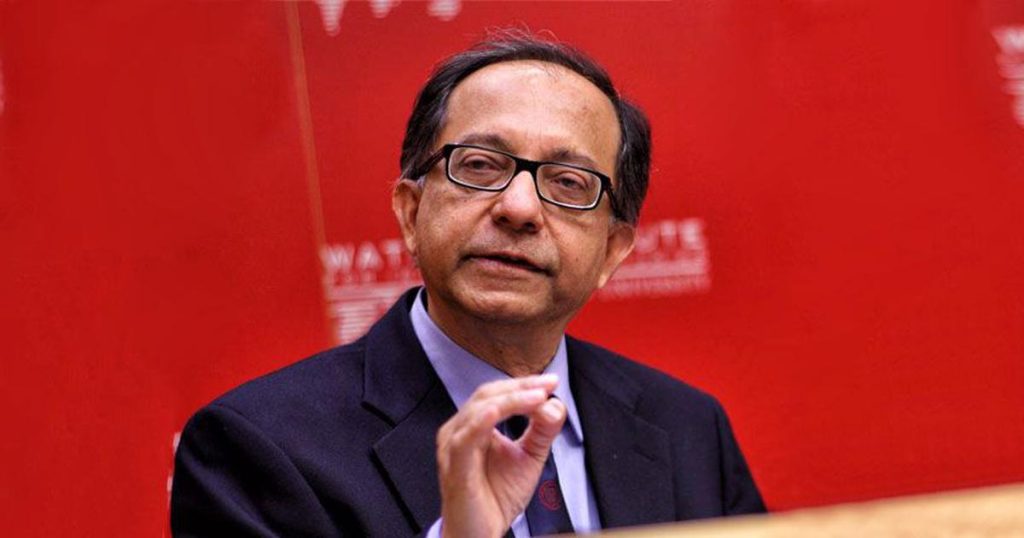By-Kaushik Basu
I n January 1934, the New York Times published an essay by journalist Harold Callender on a new phenomenon sweeping Nazi Germany: Gleichschaltung. Literally translated as “coordination,” the term had acquired a far darker meaning – the systematic Nazification of German society. Callender’s piece would prove to be one of the era’s most prescient warnings about the collapse of democracy and rise of totalitarianism. Democracy, which first emerged in fifth-century BC Athens, marked a radical leap for humankind. In its modern form, with the Enlightenment as its handmaiden, it spread across continents, taking root in future powers like the United States in the 18th and 19th centuries, and in countries such as India, newly freed from the yoke of colonial rule, in the 20th.
Yet despite its reach and resilience, democracy has always remained deeply fragile. We often assume that the gravest threats to democracy are wars, coups, or other dramatic crises. But as Callender’s essay reminds us, democratic breakdown does not require a sudden shock. An electoral democracy can gradually drift toward dictatorship, step by step, until it reaches the point of no return. For Callender, the term Gleichschaltung captured the slow, insidious process of creeping authoritarianism. While the conventional English translation missed its darker implications, the French phrase mettre au pas – “to bring into line” – came much closer. Gleichschaltung, he wrote, was “the application, mentally and morally as well as physically, of the principle of the goose-step.”
Recognising this was essential to understanding what was happening in Hitler’s Germany. By 1934, the “coordination” process was already far along. First came the erosion of regional autonomy, as Germany’s Länder (federal states) were stripped of sovereignty and placed under Nazi control. Then came the silencing of opposition and dissent. Before long, Gleichschaltung spread into the German intellectual sphere, permeating universities and research centers. Callender recounts how easily the Nazis imposed uniformity on cultural institutions – discarding much of modern art as “degenerate” – but hesitated when it came to bringing science under their programme of ideological unification. After all, could there really be a “German” or “Aryan” mathematics? Ultimately, a group of servile mathematicians at the University of Berlin convinced themselves that such a thing could, in fact, exist. The stage was thus set for the German tragedy that followed. Callender concluded his essay by noting that while Gleichschaltung, like other forms of mysticism, may remain incomprehensible to non-believers, it helps explain many of the regime’s “most puzzling” behaviours. Callender’s warnings sound eerily familiar today, as democracies around the world edge toward authoritarian rule. Hungarian Prime Minister Viktor Orbán and Turkish President Recep Tayyip Erdoğan, for example, came to power in free and fair democratic elections and then began to undermine the constitutional guardrails intended to limit their power. Even vibrant democracies like the US and India are not immune.
As we can see from recent experience, political leaders, along with their partisan allies, can exploit nationalism to concentrate power. Critically, authoritarian drift does not begin with state violence. In my 2018 book The Republic of Beliefs, I argue that oppression begins with individual acts that seem trivial on their own but become consequential once social pressures push citizens to fall in line, enabling rulers to act with impunity.
As Sergei Guriev and Daniel Treisman recount in their 2022 book Spin Dictators, the Romanian dictator Nicolae Ceau escu once told his security chief: “We can find countless ways to get rid of political criminals… We can arrest them as embezzlers or speculators, accuse them of dereliction of professional duties, or whatever else best fits each case.” The weakening of democratic institutions is compounded by rising inequality. A recent report by the G20 Extraordinary Committee of Independent Experts on Global Inequality finds that the world’s most unequal countries are as much as seven times more likely to experience democratic erosion. Research also shows that in a world dominated by social media, income inequality often translates into voice inequality. Small wonder, then, that the superrich are snapping up social media platforms and television networks to tighten their grip on public discourse. Resisting the slide toward authoritarianism should start with examining previous episodes of democratic breakdown, especially during the interwar years and the Weimar Republic.
Just as Adam Smith showed how individual choices shape entire economies, we must study how small, everyday decisions add up to major political shifts. Only by understanding the mechanisms that make Gleichschaltung possible can we design safeguards that can prevent our societies from goose-stepping into the totalitarian abyss.
The writer, a former chief economist of the World Bank and chief economic adviser to the Government of India, is Professor of Economics at Cornell University.
